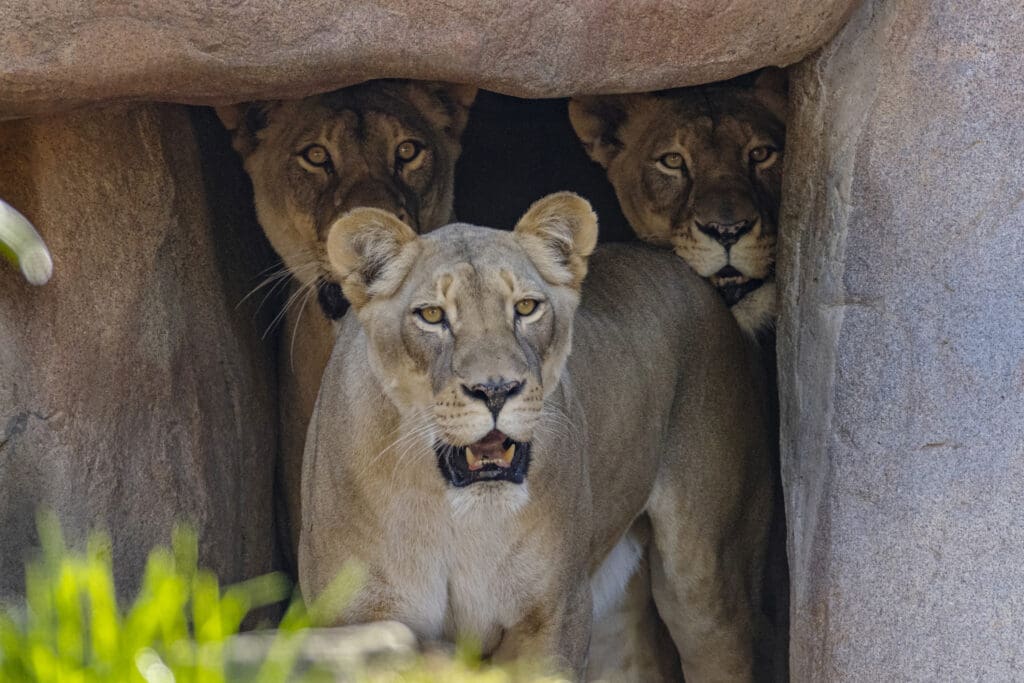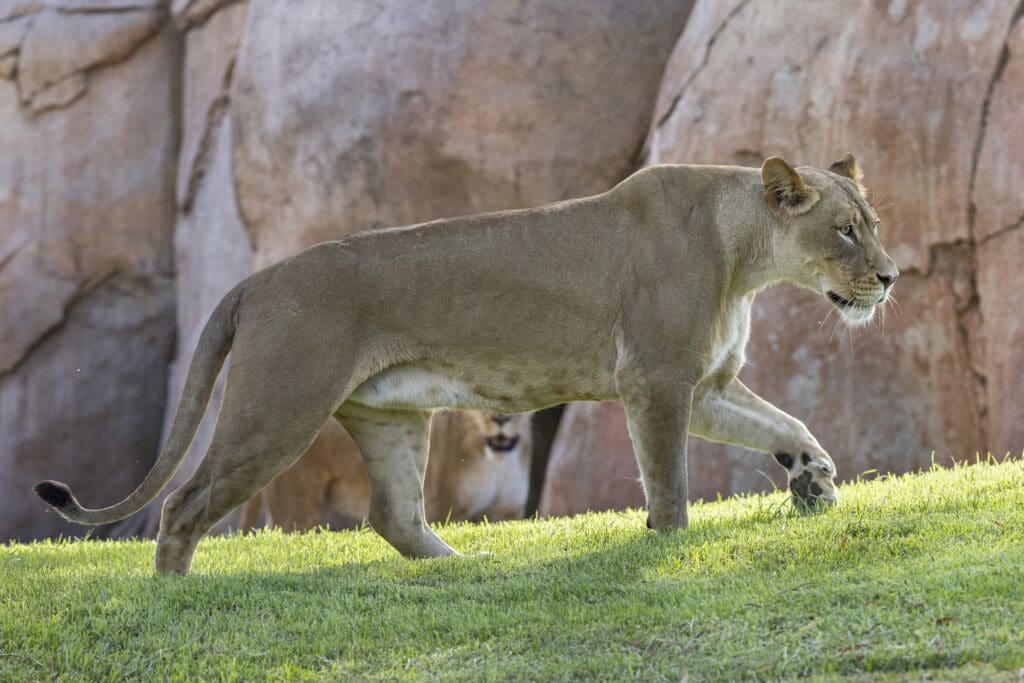The San Diego Zoo Safari Park has welcomed three new residents: 8-year-old female African lions Malika, Zuri and Amira from the Caldwell Zoo in Texas. The three lions, who are sisters, curiously explored their new home at Lion Camp earlier today—shyly at first, but soon showing great confidence as they became comfortable with their new surroundings.
“We are excited to welcome these lionesses to their new home,” said Lisa Peterson, executive director, San Diego Zoo Safari Park. “The lionesses carry on a great legacy of lions at the Safari Park. They are the great-grandcubs of the Safari Park’s beloved male lion Izu and lioness Mina, who lived here for 18 years.” Peterson added, “Our wildlife care team has worked very hard to get them comfortable in their new home, and we are so pleased they are settling in so well. We invite our guests to visit these majestic lions during their Safari Park visit, and hope everyone who visits will be inspired to learn about and gain an appreciation for this magnificent species.”

The lionesses’ safe arrival at the Safari Park was a result of much planning and collaboration between the dedicated wildlife care teams at the Caldwell Zoo, who have cared for the lions since their birth, and the San Diego Zoo Safari Park. “It is such a privilege to care for these lionesses,” said Miranda Cays, wildlife care specialist, San Diego Zoo Safari Park. “They are incredible animals, and we are so pleased to be able to share them with our guests.”
The lionesses were moved from Texas to California following a recommendation from the Association of Zoos and Aquariums (AZA) Species Survival Plan (SSP), which is designed to help maintain a healthy, genetically diverse assurance population of this species and to cooperatively manage populations within managed-care facilities.

The International Union for Conservation of Nature (IUCN) Red List of Threatened Species lists the African lion as a Vulnerable species. The African lion population is likely less than 40,000. IUCN estimates the lion population at 23,000 to 39,000 mature individuals. African lion populations are declining largely due to habitat loss, issues that threaten human-wildlife coexistence, poaching and wildlife trafficking (illegal wildlife trade).
San Diego Zoo Wildlife Alliance supports lion conservation in Kenya by supporting and collaborating with community organizations, Ewaso Lions and Northern Rangelands Trust, recognizing that the conservation of lions has to be reconciled with the needs of humans. Some challenges may be unavoidable in areas where agriculture or livestock compete with lion habitats, but together, people are working on finding ways to minimize these issues. Working with lions living at the San Diego Zoo Safari Park and the San Diego Zoo helps San Diego Zoo Wildlife Alliance conservation scientists learn more about the needs of lions in their native habitats and help lions in Africa.
The lionesses’ well-being is the top priority of their Safari Park wildlife care team. While the lions continue to acclimate to their new surroundings, they will have access to the outdoor habitat as well as an indoor, off-view area. The lionesses may not be visible to guests at the times they choose to be indoors.
Guests are invited to visit Zuri, Malika and Amira at Lion Camp, and join in the Safari Park’s 50th anniversary celebration—50 years of connecting people to wildlife, all while creating life-changing moments. All summer long, visitors to the Safari Park can experience up-close wildlife encounters, exciting safari experiences, entertainment, culinary delights and special merchandise offerings. Every visit to the San Diego Zoo Safari Park helps San Diego Zoo Wildlife Alliance take another step toward achieving its mission of saving animals and plants worldwide, and creating a world where all life thrives. For more information visit sdzsafaripark.org. #SDZSafariPark50.




